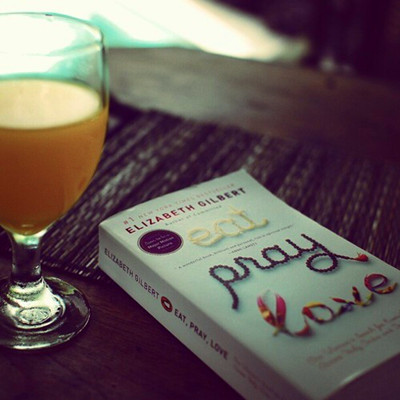(单词翻译:单击)

Karma is a notion I've always liked. Not so much literally. Not necessarily because I be-lieve that I used to be Cleopatra's bartender—but more metaphorically. The karmic philo-sophy appeals to me on a metaphorical level because even in one lifetime it's obvious how of-ten we must repeat our same mistakes, banging our heads against the same old addictions and compulsions, generating the same old miserable and often catastrophic consequences, until we can finally stop and fix it. This is the supreme lesson of karma (and also of Western psychology, by the way)—take care of the problems now, or else you'll just have to suffer again later when you screw everything up the next time. And that repetition of suffer-ing—that's hell. Moving out of that endless repetition to a new level of understanding—there's where you'll find heaven.
我向来喜欢因果循环这个概念。并非就字面而言,不见得因为我相信自己从前是埃及艳后身边的调酒师——而是就比喻而言。因果循环的哲学,在比喻层面上,受我青睐,是因为即便在我们此生当中,我们显然也经常重复相同的错误,执著于相同的瘾头与冲动,一再制造相同的悲惨后果,直到自己最终能加以阻止并解决。这是因果循环(同时也是西方心理学)的至高课程——立即解决问题,否则下回再搞砸一切,就得再痛苦一次。重复的痛苦,亦即地狱。脱离无止无尽的重复状态,进入新层次的了结——始可找到天堂。
But here Ketut was talking about heaven and hell in a different way, as if they are real places in the universe which he has actually visited. At least I think that's what he meant. Trying to get clear on this, I asked, "You have been to hell, Ketut?"
然而赖爷对于天堂与地狱的说法并不一样,仿佛他确实去过宇宙当中的这些地方。至少我认为这是他的意思。由于想弄清楚,我问:"赖爷,你去过地狱?"
He smiled. Of course he's been there.
他微笑。他当然去过。
"What's it like in hell?"
"地狱是什么样子?"
"Same like heaven," he said.
"和天堂没有两样。"他说。
He saw my confusion and tried to explain. "Universe is a circle, Liss."
见我一脸茫然,他尝试说明:"宇宙是个圆,小莉。"
I still wasn't sure I understood.
我想我还是不清楚。
He said. "To up, to down—all same, at end."
他说:"去上面,去下面——最后都一样。"
I remembered an old Christian mystic notion: As above, so below. I asked. "Then how can you tell the difference between heaven and hell?"
我记得基督教有个古老神秘的概念:"如其在上,如其在下"。我问:"那你如何分辨天堂与地狱?"
"Because of how you go. Heaven, you go up, through seven happy places. Hell, you go down, through seven sad places. This is why it better for you to go up, Liss." He laughed.
"看你怎么去。天堂,你往上去,通过七个快乐的地方。地狱,你往下去,通过七个哀伤之地。因此往上去比较好,小莉。"他笑道。
I asked, "You mean, you might as well spend your life going upward, through the happy places, since heaven and hell—the destinations—are the same thing anyway?"
我问:"你是说,反正天堂和地狱这两个目的地都一样,你这辈子还不如往上去,通过快乐的地方?"
"Same-same," he said. "Same in end, so better to be happy on journey."
"都一样、都一样,"他说,"结果都一样,因此最好有一趟快乐的旅途。"
I said, "So, if heaven is love, then hell is . . ."
我说:"那么,倘若天堂是爱,地狱就是……"
"Love, too," he said.
"也是爱。"他说。
I sat with that one for a while, trying to make the math work.
我坐在那儿思索了一会儿,想搞清楚答案。
Ketut laughed again, slapped my knee affectionately with his hand. "Always so difficult for young person to understand this!" Eat, Pray, Love
赖爷又笑了,亲切地拍拍我的膝盖。"年轻人老是很难理解这一层意义!"


